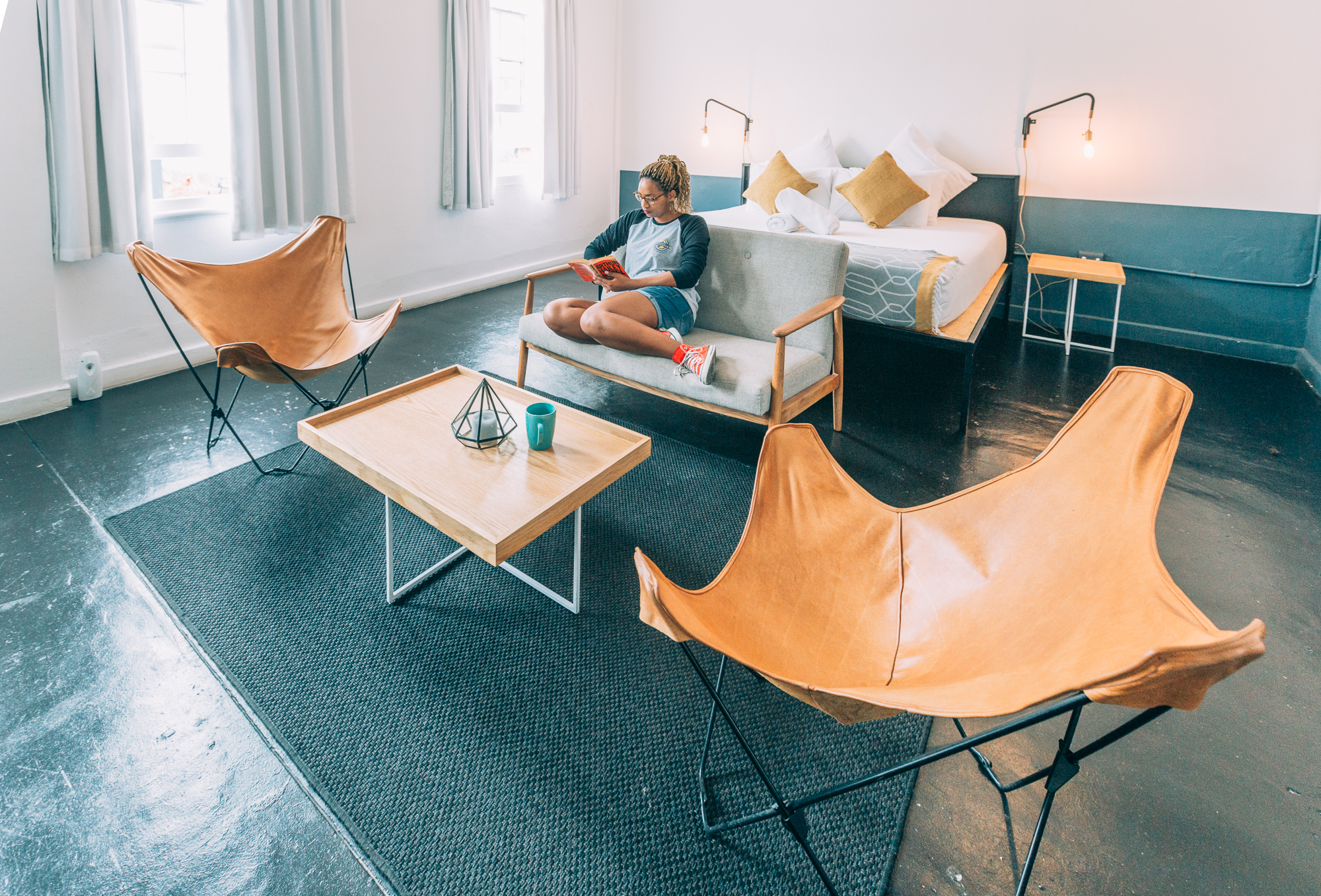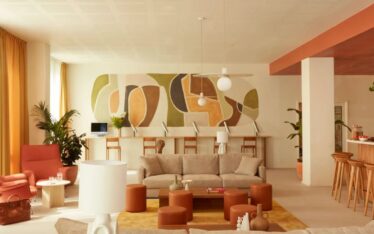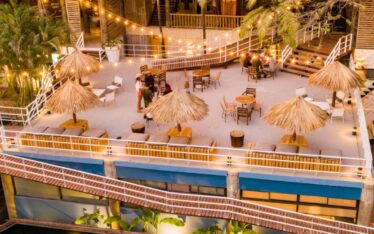This week, we attended Sleep & Eat, Europe’s leading design and development event for the hospitality sector which took place here in London. Over two days, a whole host of inspiring industry leaders spoke at the conference, giving their take on the future of the industry.
Topics included how to design social spaces to make it easier for guests to connect with each other and the fact that affordable places where people can rest, work and play will be the future. Sound familiar?
We couldn’t help but notice how many of the discussions reminded us of hostels. What many hospitality brands now see as innovative in terms of sociability and experiences is, in many cases, a reimagining of what hostels have been doing for years.
So, as the line between hostels and hotels continues to blur, will the hostel experience soon become known as the hospitality experience? And are hostels really the unsung heroes of the travel industry?
Let’s dig a little deeper…
“Our job is to create social spaces that make it easy for people to have fun and enjoy themselves” – Amar Lalvani, CEO of Standard International
The Standard are a dynamic and playful hotel brand who have earned a reputation for great design, attention to detail and exceptional service. Located in New York, Los Angeles, Miami, the Maldives and London, they describe themselves as a ‘pioneer of hospitality, travel, dining, nightlife, and beyond’.
During his keynote speech, Amar Lalvani was asked about how the brand creates such unique design concepts when it comes to their social spaces. He explained how he and his design team understand that while looking the part is important, the key factor is creating social spaces that make it easy for people to have fun and enjoy themselves.
From live music performances to a carefully curated ‘library’ in the lobby lounge (which we loved when visiting their recent London opening), The Standard’s fun spaces are one of the ways they are transforming the guest experience.

While many hostels cannot offer the same level of luxury as brands like The Standard, they have always focused on affordability and provided spaces with fun, engaging atmospheres which make it easy to meet new people. From happy hours at the bar to free activities like games nights and tours, hostels have long been centred around sociability which is a huge booking motivation for guests, particularly millennials and Gen-Z travellers. While Airbnb have also taken note with the introduction of Airbnb Experiences back in 2016, the fact is you simply can’t find the same social experiences in AirBnbs or budget hotels as you do in a hostel.
With today’s travellers increasingly seeking opportunities to meet like-minded people while on the move, there’s little surprise that hotels are now putting an emphasis on this sociability factor. For The Standard, it’s always been, well, the standard (!) but for many hotels, creating spaces that don’t just look the part but also facilitate genuine human connection is a new journey.
“We are in a crisis of loneliness. We want to create a space where people can get together, share and bounce ideas off each other…we want to bring people back together.” – Josh Wyatt, CEO of NeueHouse
Describing their offering as “a private cultural and collaborative space for prominent creatives, artists and entrepreneurs,”, NeueHouse provide world-class workspaces – along with high-quality food and beverage facilities and event spaces – in Los Angeles and New York.
One of the most important elements of the NeueHouse experience is the opportunity for members to connect with like-minded creative professionals. CEO Josh Wyatt – a veteran of the hospitality industry, having created Generator Hostels back in 2007 – explained more about the importance of connection in his inspiring keynote talk.

He explained: “We are in a crisis of loneliness. We are in a crisis of people not interacting the way they used to do 10 years ago… We want to create a space where people can get together, share and bounce ideas off each other…We want to bring people back together.”
There’s plenty of hard evidence to support this crisis claim. In fact, a recent survey from Business Insider found that millennials were more likely to feel lonely than previous generations with 30% stating that they ‘always or often felt lonely’.
As the world becomes increasingly centred around technology, we can all be guilty of scrolling on our phone rather than striking up a conversation which is why NeueHouse’s aim to bring people together is so important – and necessary.
In the accommodation space, hostels are also combatting this social issue of loneliness. They do this not only through shared dorms, but by offering unique group experiences from free walking tours to local cookery classes and just about everything in between. Providing these types of experiences is particularly important as solo travel continues to grow in popularity.
Many hostels have also introduced technology-free hours and spaces to encourage guests to put down their phones and get chatting to their fellow travellers. This has proved popular with travellers and the ‘digital detox’ trend looks set to continue as people become more conscious of their screen time.
“A place where people can work, rest and play is the future” – Steve Pette, Co-founder Oremeau Baths and Founder Think Hearts + Minds
Ormeau Baths is an award-winning co-working space in the heart of Belfast City Centre which is designed to encourage collaboration between entrepreneurs.
Co-working spaces like this are on the up globally and it’s even been predicted that half of the workforce here in the UK will be working remotely by the end of 2020. As a location-independent business with clients (and staff) all over the world, it’s safe to say we’ve been keeping an eye on this area for some time.
Many hostels have tapped into the incredible potential of this movement by offering digital nomads places to work, a sociable and welcoming community to meet others and a comfortable place to sleep – all in one place and at an affordable price.

International chains such as Selina and Tribe Theory have been built around this very concept, creating global communities of entrepreneurs and transforming what it means to work on the move. Independent hostels including ONE DAY in Bangkok and Home Lisbon Hostel also provide dedicated co-working spaces for their guests.
Offering hot desk plans, networking events and business workshops, hostels around the world are working hard to ensure their guests have the flexibility to work when they travel. This also appeals to business travellers who are opting to incorporate sightseeing and leisure time into their work trips, a trend which has been coined ‘bleisure’ and shows no signs of slowing down.
So, are hostels and hotels meeting in the middle? And what’s a hybrid-hotel, anyway?
While hotels shift their focus to fostering sociability, hostels are also becoming more luxurious and technologically-advanced.
This convergence, led by Generator at the start, has now given birth to a whole new concept – the hybrid-hotel. Like Generator, many hostel brands are dropping the word ‘hostel’ from their name altogether in a move which divides industry opinion.

Brands like our client CURIOCITY, who started with a backpackers in Johannesburg, are growing up with the opening of their first design-led hybrid-hotel in Cape Town this month while huge players like Hilton chase the trend with the introduction of their new Motto concept to the market in 2020. Groups like Portugal’s Independente Collective merge stylish stays with outstanding food and beverage offerings and shared social experiences which exemplifies where the industry is heading.
Boutique brands like Ho36 Hostels in France, All That Bangkok Hostel in Thailand and Boho Hostels in Canada could easily be mistaken for hotels with their luxury offering, unique design and impressive facilities.
Technology is being used to make the guest experience smoother, too. We were impressed with Steelhouse Copenhagen’s slick self check-in process on a recent visit and our client, CoDE Pod Hostels, has done away with traditional keys in favour of a keypad entry system where guests only need (you guessed it) a code for access.

We are also seeing hostels and hotels provide the same kind of perks in a bid to encourage social interaction between guests. A great example is of this is the fact that boutique hostel Lost Inn Lisbon and eco-hotel chain Conscious Hotels both offer a free wine/sangria hour for guests in their bars each evening.
These changes ultimately benefit the guest which can only be a good thing – but it does mean competition is fierce to get traveller’s attention. Many hostel owners we speak to, including Gal Mor of Abraham Hostels and Dror Tirosh of Loki Hostels, see this increased competition as a positive in that it pushes hostels to innovate and raises the bar for the industry as a whole.
Whatever your view, when it comes to fostering connection and creating shared social spaces, it’s safe to say that hostels have a head start.
Do you think the future of the hospitality industry looks a lot like a hostel? We would love to hear your thoughts on these industry changes – let us know in the comments or over on our social media pages.



